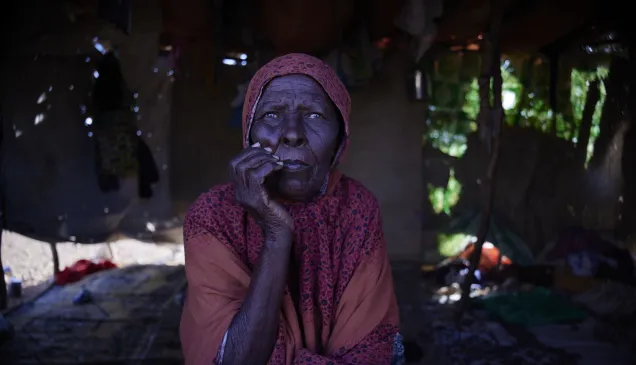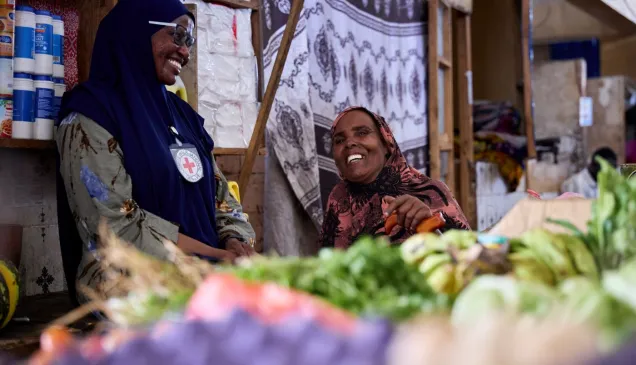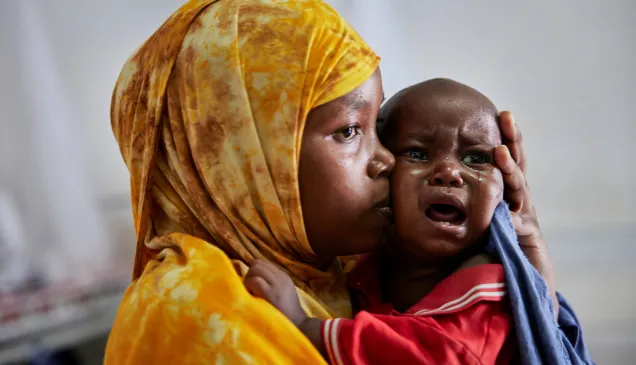Mogadishu’s skyline as seen from the top of a building in Waberi area along Maka Al-Mukarama road. The airwaves are filled with over 20 local radio stations.
Somalia: Preventive care using radio
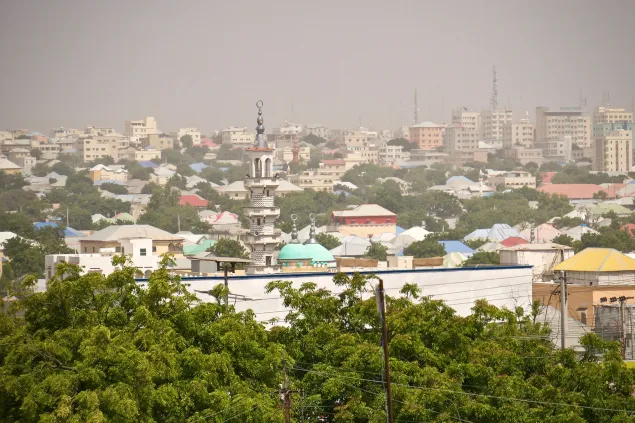

Radio continues to enjoy the highest reach in Somalia compared to other forms of media. The ICRC together with the Somali Red Crescent Society (SRCS) are working with local radio to promote hygiene and safety within the Somali communities.
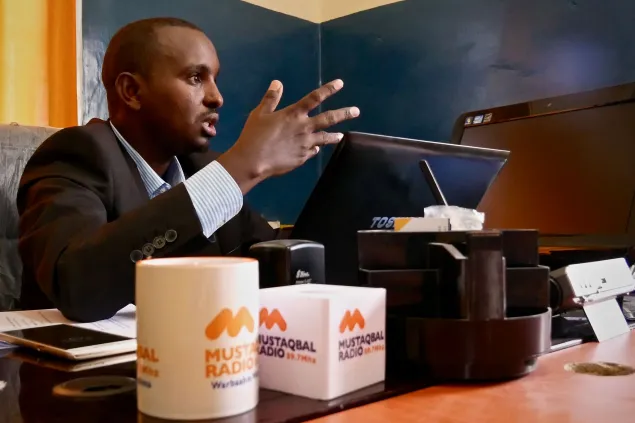
Ahmed Isse Gutale, a programmer with Mustaqbal radio, was involved in scripting the three radio spots on three main messages the ICRC and SRCS is trying to promote: Wash hands with soap, drink safe water and visit SRCS clinics for antenatal care.
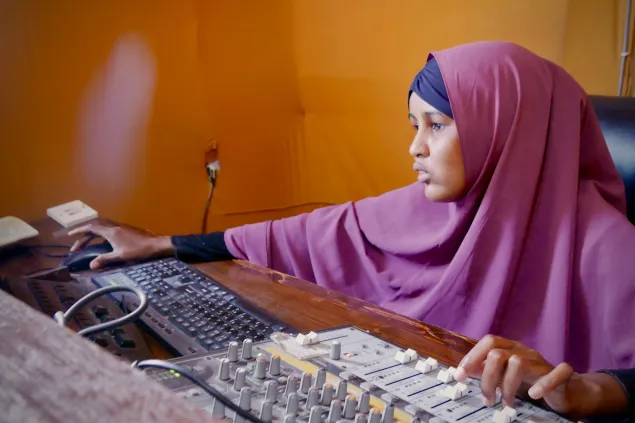
Ayan Gure Bare is a technical operator working in Mustaqbal Radio. She mixes the audio in the studio and cues the various presenters during talk shows. She helped create and source the sound effects which were used in making the radio spots.
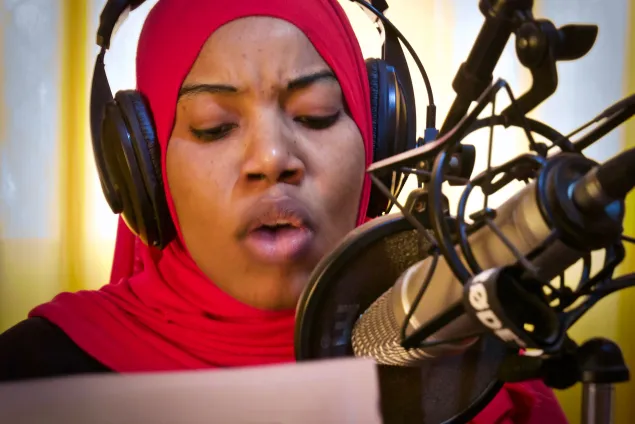
Nasrin Mohamed Ali, head of production at the radio station, voiced one of the characters in the radio spots. The spots involved dramatization of everyday scenarios with a little mix of humour to deliver the message.
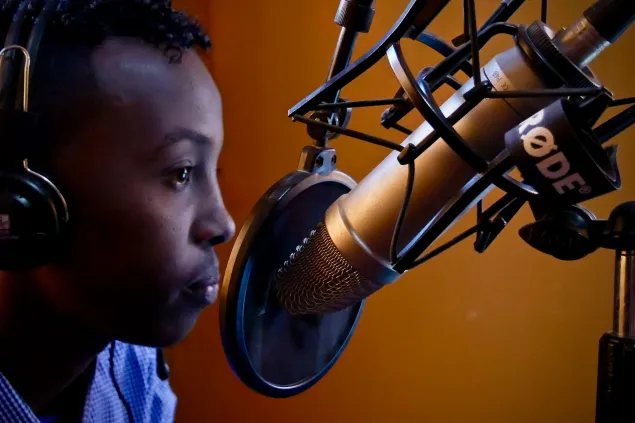
Abdullahi Hussein Omar, 20, played the role of a young boy in one of the radio spots. The scene involved his character about to drink untreated water before his mother intervened. Water-borne diseases in Somalia are a constant threat during both dry and rainy seasons. Scarcity of water during the dry seasons drives communities to different sources of water that may be untreated while contamination risks increase during floods.
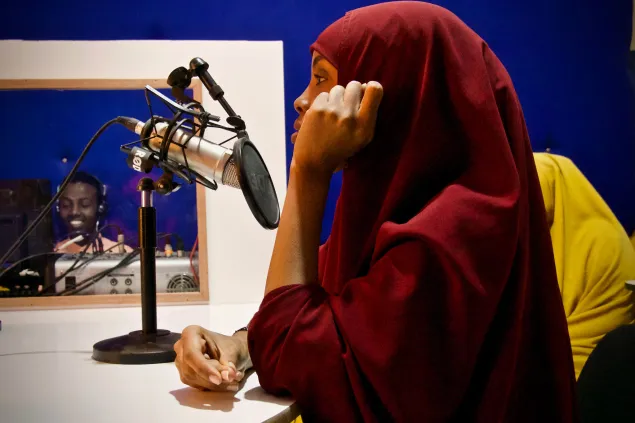
Mandeq Ali plays out her scene during the recording of one of the radio spots. Female voices were the natural choice when it came to the radio spot that was meant to encourage regular visits to SRCS clinics for antenatal care.
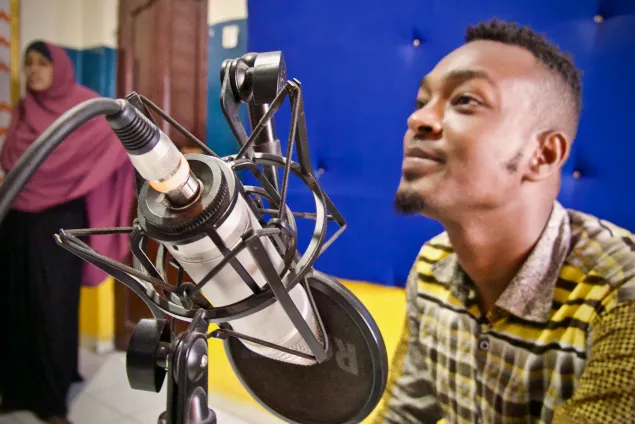
Mohamed Abdulkadir Sharrif, one of the talents involved in the project, voiced the spot that seeks to improve hand washing behaviour by encouraging the use of soap. The delivery was such that no hand washing exercise is complete without soap. Globally, washing hands with soap is considered to be one of the most cost‐effective ways of reducing the risk of contracting diarrhea and similar water-borne diseases.
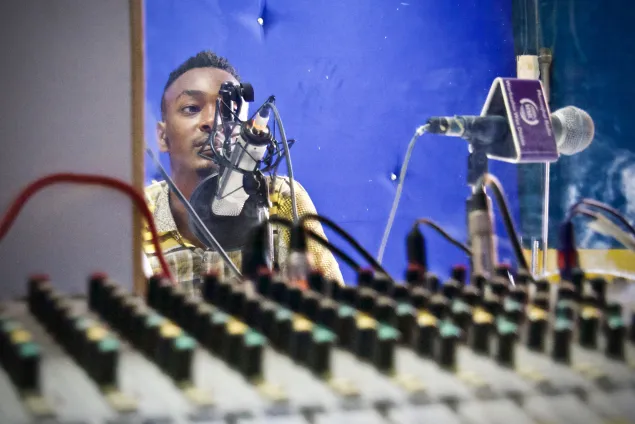
All three radio spots will run on local radios across Somalia. In 2017, according to figures from cholera treatment centres run by the ICRC, a total number of 10,728 acute watery diarrhea patients were treated while 61 people died as a result of the disease.
The International Committee of the Red Cross together with the Somali Red Crescent Society is working with a local radio station, based in Somalia, to encourage everyday habits that will help keep diseases, like acute watery diarrhea and cholera, away. These photos give you a behind-the-scenes look at the actors providing messages that could help contain the threat of the killer disease.

